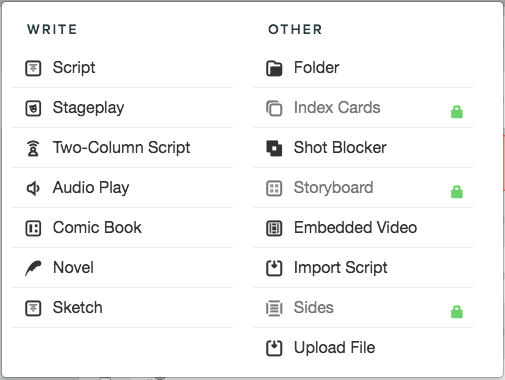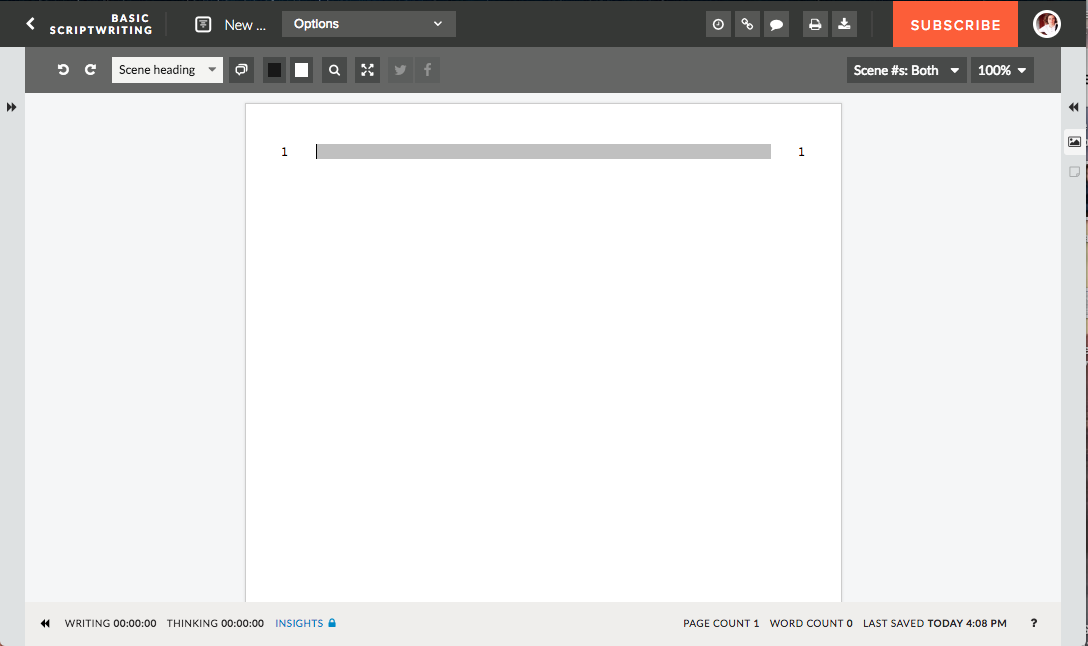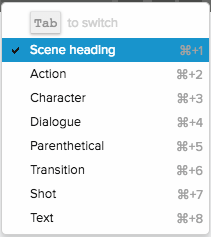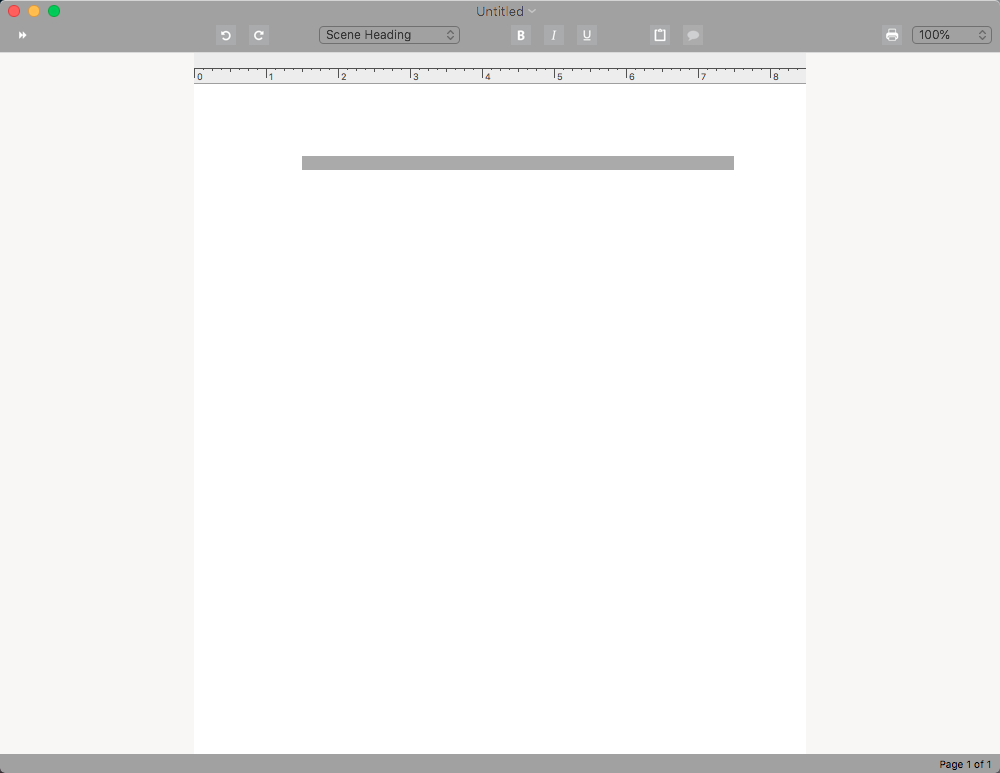How To
How to start screenwriting for free with Celtx

- July 26, 2018
- Updated: March 7, 2024 at 5:48 PM

To create movie or television scripts, you need a screenwriting program. That’s it. Planning can happen outside on other applications, but the screenwriting itself shouldn’t be completed on a notepad or in a word document; it’s the difference between using a laptop and scratching words out on a stone tablet.
Okay, maybe not that bad, but still.
If you’re starting out, there’s no need to pay the starting fee of $250 for Final Draft 10 (Final Draft’s program is the industry standard for screenwriting and will essentially be required of all professionals). Celtx offers many of the same resources for free, the most important being the screenwriting environment itself.
The Program
Celtx has two formats: the online website and downloadable app. They work differently from each other in a few ways.
Website
If you want to work with others or have a greater range of capabilities, try the Celtx website.
Don’t be concerned when Celtx asks you to choose a plan: they simply offer more benefits with a subscription. Choose the basic, unpaid version, and you’ll automatically receive a free month with the full plan. Then, try out the note cards and story boards and decide whether you’d like to invest.
Now that you’re in the system, you get to create a project!

Projects are essentially file folders. Choose how to name your projects carefully: when the first month ends, you’re only allowed 3 projects at a time, and you can’t change the names. Therefore, it may be best to create categories like Drama, Comedy, and Mystery, and then fill those with individual scripts later.
Within your project, you now create a new file. Most screenplays or teleplays will fall under the designation of “Script”.


When you open up the new window, you’ve entered the work environment:

You can now get to writing! However, before we go on, there are a few things to notice here. We’ll go left to right, top to bottom.
1. The Top Bar: the arrow at the top left will take you back to your studio and the other projects. Clicking the “New Screenplay” slot allows you to rename the document. The other buttons allow you to share, comment, print the document, and visit your profile.
2. Lower Bar: your tool chest awaits here, much akin to any other Word processor. This is where you find the Undo/Redo buttons, font color, and page size. However, Celtx also offers some script-specific items: type mode, simultaneous dialogue, and scene selection (all shown below).


![]()
3. Side Bars: these allow you to see notecards and other functions. They will be unavailable in the free version.
4. Main Window: this is where you type! Celtx makes screenwriting easier with the ability to switch between type modes with the “tab” button, or the mode selector mentioned above. When you get used to system, you’ll be able to switch between scenes, dialogue, and action with ease. Just remember, it’s like an instrument: learn to work with it, and then you can start singing.
5. Lower Bar: here, Celtx shows how much long the document has been active/inactive, the page and word count, and when everything was saved last. Also, there’s a small question mark for help.
Now, your hard work as a screenwriter comes into play! Although Celtx makes screenwriting far easier, it’s up to you to learn how screenwriting itself works. Make sure to read other screenplays to improve your skills and understanding of how screenwriting works!
(NOTE: the website version requires a consistent internet connection.)
App
The Celtx app is free on mobile devices, but must be purchased on a laptop for $20. Unlike the Website, it can be used online or offline.
The main difference? Aside from a desktop folder with unlimited storage, the work window appears more sparse. A few functionalities, like simultaneous dialogue, have been removed:

Still, the clean environment may be perfect for some. It helps improve focus and still has the type mode functionalities required to make screenwriting an easier process.
Final Words
Remember that the most important requirement for finishing any long-term project is determination. Consistency also helps, so try to plan on writing for a minimum amount of time, at a certain point of the day. Celtx will help you move along easier once you get the hang of it, so keep working, and we wish you the best!
Trevor Hutchins writes screenplays, novels, and articles from his home in La Mirada, California. He self-published hist first novel, 'Wynden's Legacy,' on Amazon in May of 2017 and hasn't stopped writing since.
Latest from Trevor Hutchins
You may also like

No Plans To Relocate Ev Production: General Motors Stays Committed To Mexico
Read more

Open UI 8: These are the changes we expect
Read more

Tesla Settles Wrongful Death Lawsuit Over Sudden Acceleration Incident
Read more

Tesla Set to Reveal Q1 2025 Financial Results Amid Delivery Drop
Read more

How to disable Gemini in Google Messages
Read more

Tesla Used Vehicle Prices Plummet Amid Surge in Sellers
Read more
